
Are Tech Billionaires’ Doomsday Plans a Sign of Something Bigger?

The idea of tech billionaires preparing for the end of the world sounds like something straight out of ‘Don’t Look Up’. Yet, it’s not fiction anymore. From Hawaii to Silicon Valley, whispers of underground bunkers, survival shelters, and “apocalypse insurance” are growing louder.
Behind high security gates, the world’s richest minds might be preparing for something the rest of the world hasn’t fully grasped yet.
Mark Zuckerberg’s Underground Mystery
Mark Zuckerberg reportedly began construction on Koolau Ranch, a massive 1,400-acre property on Kauai, Hawaii, years ago. According to Wired magazine, the compound includes an underground shelter stocked with independent energy and food supplies. Workers on the site allegedly signed strict non-disclosure agreements, and a six-foot wall now shields the project from public view.
When asked whether he was building a doomsday bunker, Zuckerberg dismissed the idea, calling it “just a basement.” Still, his plans for an additional 7,000-square-foot underground space in California’s Palo Alto have only added to the rumours. Some of his neighbours even joke that it’s less a basement and more of a “billionaire’s bat cave.”
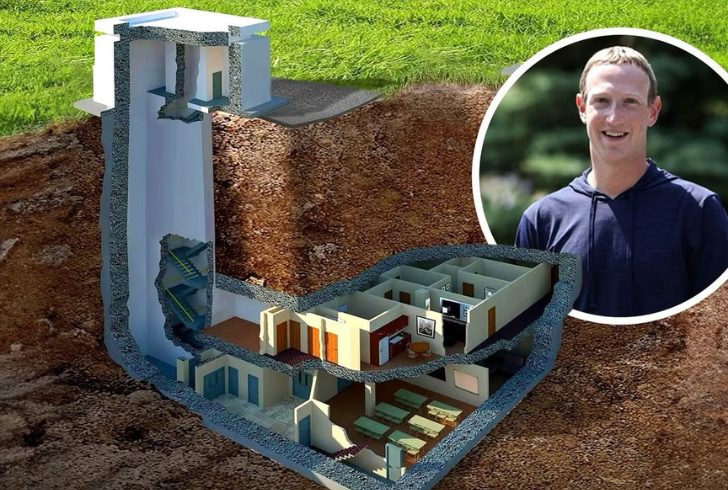
Instagram | @josephabehsera | Mark Zuckerberg builds secret underground spaces, sparking doomsday rumours and curiosity about his private projects.
Tech Billionaires and Their ‘Apocalypse Insurance’
Zuckerberg isn’t alone. LinkedIn co-founder Reid Hoffman once said nearly half of the world’s super-wealthy have what he calls “apocalypse insurance.” This means land, bunkers, or getaway homes, many of them in remote, politically stable countries like New Zealand.
Hoffman’s comments sparked curiosity: are these tech moguls simply being cautious, or do they know something others don’t? Some believe it’s fear of climate change or geopolitical tension. Others think it’s the growing uncertainty surrounding artificial intelligence (AI).
The Fear of Their Own Creation
In recent years, the explosive rise of AI has become both thrilling and terrifying. By mid-2023, OpenAI’s ChatGPT had already reached millions of users worldwide. Yet, within the company, tension grew over how far the technology could go.
OpenAI’s chief scientist and co-founder Ilya Sutskever reportedly worried that AI was advancing too fast. He suggested building a secure underground shelter for top scientists before releasing artificial general intelligence (AGI), technology capable of human-level reasoning.
According to journalist Karen Hao, Sutskever once said, “We’re definitely going to build a bunker before we release AGI.” That statement revealed something striking. Many leading minds creating AI also fear what it could one day become.
When Will AGI Arrive?
Predictions about AGI vary wildly. OpenAI’s CEO Sam Altman said in late 2024 that it could appear “sooner than most people think.” DeepMind’s co-founder Sir Demis Hassabis expects it within five to ten years. Others, like Anthropic’s Dario Amodei, believe it might be as soon as 2026.
Still, some scientists remain skeptical. Dame Wendy Hall from Southampton University has pointed out that AI is impressive but far from matching human intelligence. “They move the goalposts all the time,” she said, emphasizing that genuine AGI requires several major scientific breakthroughs.
What’s clear is that AI’s evolution won’t happen in a single moment. It’s a fast-moving journey, with companies worldwide racing to push limits. The excitement stems from what might follow AGI, artificial superintelligence (ASI), a form of technology that could surpass human thought entirely.
From Theory to Tech Ambition
The term “singularity” traces back to Hungarian-born mathematician John von Neumann in the 1950s. It refers to the moment when machines exceed human comprehension. Recent thinkers like Eric Schmidt and Henry Kissinger explored this idea in their 2024 book ‘Genesis’, suggesting that once technology becomes capable of perfect decision-making, humanity might surrender control to it completely.
To some, this shift feels inevitable. To others, it sounds like the plot of ‘The Matrix’, humans handing power to their creations.
Could AI Actually Be Good for Humanity?
Despite the fear, many tech leaders remain optimistic. Proponents believe AGI and ASI will transform medicine, end hunger, and combat climate change. Elon Musk has claimed that superintelligent AI could lead to “universal high income,” where everyone benefits from automated abundance.
He envisions a world where people have personal robotic assistants, “their own R2-D2 and C-3PO”, and where access to healthcare, food, and housing is universal. In his words, AI could bring “sustainable abundance.”
That vision sounds hopeful, yet not everyone is convinced. The same technology that could heal could also harm. Experts warn of misuse, weaponization, or even scenarios where AI perceives humans as obstacles to progress. Tim Berners-Lee, the creator of the World Wide Web, recently stated, “If it’s smarter than you, we must keep it contained. We have to be able to switch it off.”
Governments Step In — Or Step Back
Governments have started to take AI safety seriously. In 2023, U.S. President Joe Biden issued an executive order requiring leading AI firms to share safety data with federal regulators. However, President Trump later reversed parts of it, arguing that regulations slow down innovation.
Meanwhile, the UK established the AI Safety Institute, a research group focused on understanding potential threats posed by advanced AI systems. Yet, not everyone is waiting for government solutions, especially not the billionaires with private bunkers and “insurance plans.”
The Bunker Problem No One Talks About
While survival shelters might sound practical, they have their own flaws. One ex-bodyguard reportedly claimed that if a global catastrophe did occur, the first move of any billionaire’s private security would be to take control of the bunker for themselves. “And he didn’t seem to be joking,” the report noted.
So, are these high-tech hideouts symbols of paranoia or just expensive peace of mind? It depends on whom you ask.
Experts Dismiss the Hype

Instagram | @proschool.ai | Professor Neil Lawrence believes the entire AGI concept is misguided.
Not all scientists buy into the doomsday mindset. Neil Lawrence, a professor of machine learning at Cambridge University, believes the whole concept of AGI is misguided. He argues that expecting a single “general” intelligence is like expecting one vehicle to perform every transport task on Earth. “There’s no such thing as an ‘Artificial General Vehicle,’” he says.
For him, AI’s current achievements are already revolutionary. Machines can now interpret data, assist in medicine, and even hold conversations. The problem, he says, isn’t the fear of AGI, it’s our distraction by that fear. While society obsesses over futuristic threats, opportunities to improve everyday life slip by unnoticed.
What AI Still Can’t Do
Modern AI tools excel at recognising patterns and processing massive amounts of data, but they lack emotions, consciousness, and self-awareness. They don’t “feel” or “understand” in the human sense.
Babak Hodjat of Cognizant explains that even advanced models like large language systems have limitations. “They can mimic learning,” he says, “but they don’t actually know what they know.”
On the other hand, the human brain, with 86 billion neurons, remains unmatched. It constantly adapts, learns instantly, and connects ideas emotionally. If told that life exists on another planet, a person immediately integrates that idea into their worldview. A machine can only replicate that if it’s reminded repeatedly.
Money, Power, and the Search for Control
The fear driving billionaire bunker culture isn’t just about survival—it’s about control. Technology once promised freedom, yet its creators now prepare for a world they worry they can’t manage.
Some critics argue that AI hype is partly about funding. Vince Lynch, CEO of IV.AI, notes that building “the smartest thing ever” attracts money, while AGI still requires immense computing power, creativity, and experimentation.
The broader lesson isn’t about bunkers or billionaires—it’s about balance. Technology evolves faster than society expects, and progress depends on humans guiding the code responsibly, not the other way around.
More in Tech
-
`
Is Apple Ditching the SIM Card With Its Latest iPhone?
For years, sliding a tiny SIM card into a phone has been the first step to getting connected. Apple now appears...
September 23, 2025 -
`
Why New York Nightlife Keeps Attracting Visitors Worldwide
New York comes alive after dark in a way few places on earth can match. The city never limits itself to...
September 16, 2025 -
`
How Celebrities Are Taking Over the Business World
The definition of celebrity success has expanded well past awards and sold-out tours. Today, many Hollywood names are equally focused on...
September 9, 2025 -
`
Which Foods Should You Avoid When on Holiday?
Vacations are meant to be filled with unforgettable moments, but one wrong meal can turn a dream trip into a health...
September 2, 2025 -
`
Quantum Computing Set to Give Commercial Real Estate a Major Lift
Quantum computing is no longer a concept confined to research labs. It is steadily moving toward commercial use, and with that...
August 26, 2025 -
`
Is Your Office Suffering from ‘Culture Rot’? Here’s How to Spot It
A healthy workplace doesn’t need to be perfect, but it should inspire productivity, respect, and trust. Yet, an alarming trend is...
August 19, 2025 -
`
The Small Businesses That Built Musk’s Empire Are Now Bankrupt
What looked like a dream deal for small businesses working with Elon Musk’s companies turned into a financial nightmare for many....
August 12, 2025 -
`
The $2.3 Billion Food Waste Challenge in Short-Term Vacation Rentals
Short-term vacation rentals may offer comfort, but they also come with a hidden cost—food waste. A recent study from Ohio State...
August 5, 2025 -
`
As Markets Decline, Climate Tech Advocates Push for Alternative Funding
Funding in climate technology didn’t vanish—it simply stopped pretending to be easy. After years of aggressive capital inflows, the sector is...
July 29, 2025


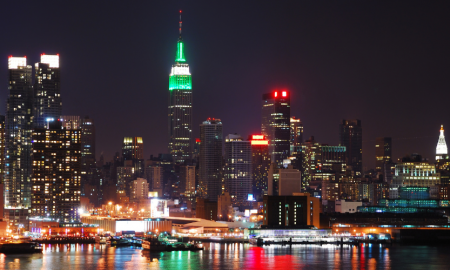


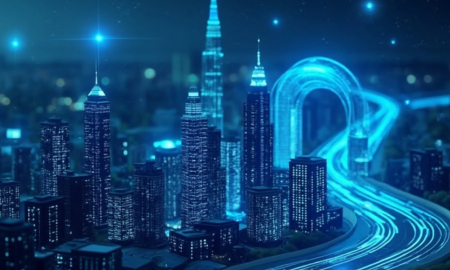

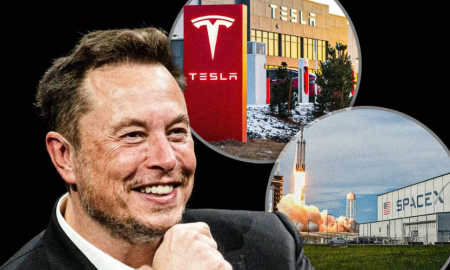

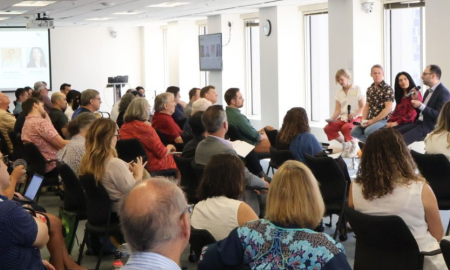


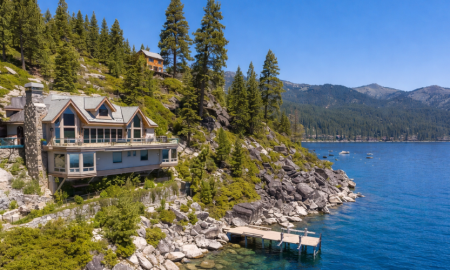


You must be logged in to post a comment Login